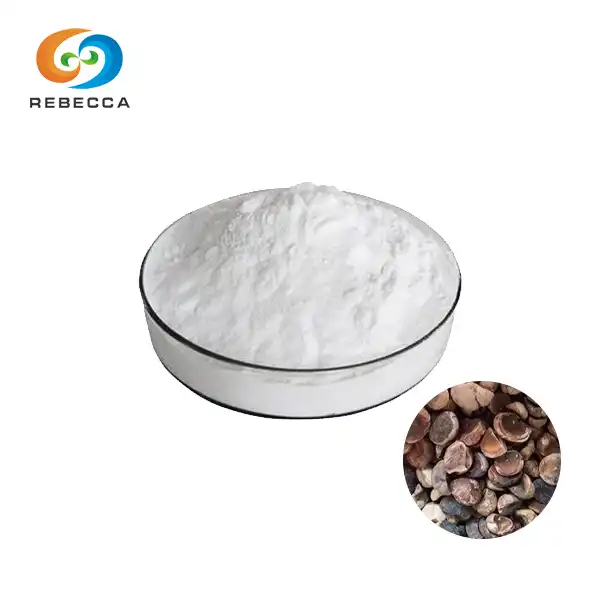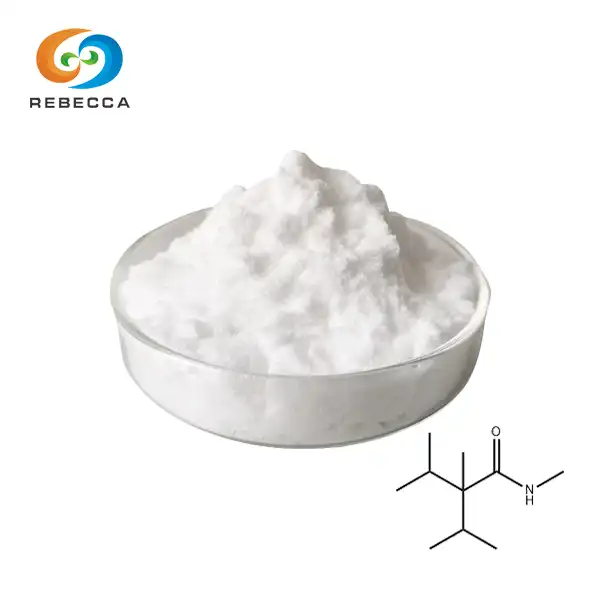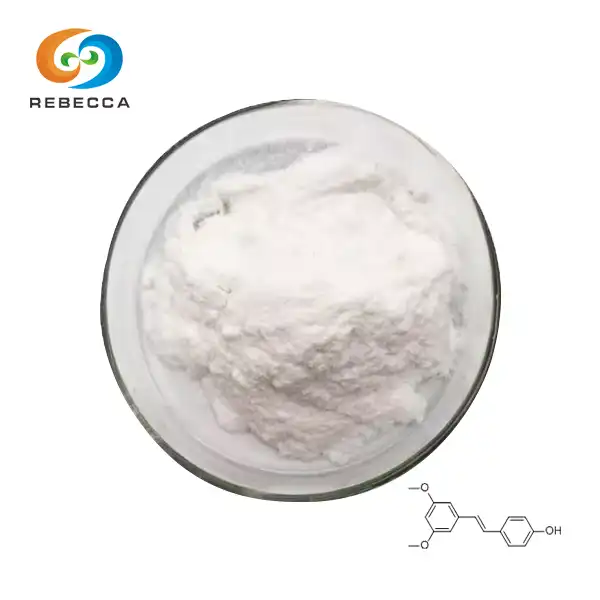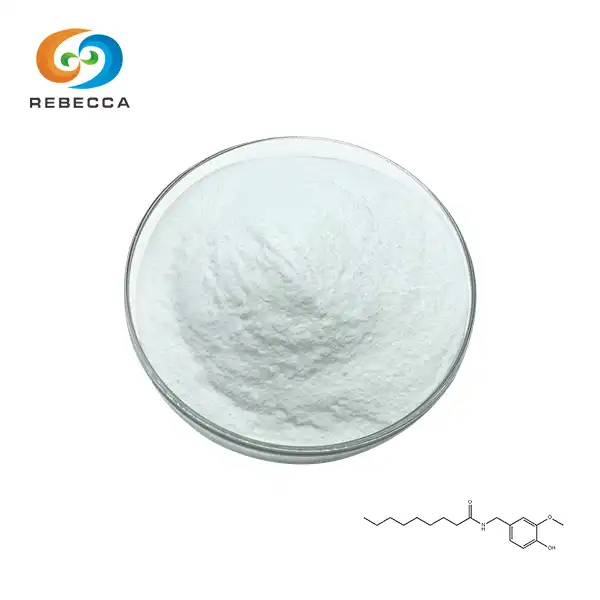Synephrine Hydrochloride Powder Side Effects
Synephrine hydrochloride powder, a compound derived from bitter orange extract, has gained popularity in the health and fitness world for its potential weight loss and performance-enhancing properties. However, like any supplement, it's crucial to understand the potential side effects before incorporating it into your regimen. This comprehensive guide delves into the various aspects of synephrine hydrochloride powder side effects, offering valuable insights for those considering its use.

Identifying Potential Side Effects
Synephrine hydrochloride powder, while touted for its benefits, can lead to several side effects that users should be aware of. These effects can range from mild discomfort to more severe complications, depending on individual sensitivity and dosage.
Common side effects associated with synephrine hydrochloride powder include:
- Increased heart rate
- Elevated blood pressure
- Headaches
- Dizziness
- Nausea
- Anxiety or jitteriness
- Insomnia or sleep disturbances
Some users may experience more pronounced cardiovascular effects due to synephrine's stimulant properties. These can manifest as palpitations, chest pain, or irregular heartbeat. It's paramount to monitor these symptoms closely and discontinue use if they persist or worsen.
Gastrointestinal distress is another potential side effect. Users might encounter:
- Stomach discomfort
- Acid reflux
- Constipation or diarrhea
In rare cases, more severe side effects have been reported, including:
- Severe hypertension
- Myocardial infarction
- Stroke
- Seizures
It's crucial to note that these severe side effects are typically associated with high doses or prolonged use of synephrine hydrochloride powder. However, their occurrence underscores the importance of cautious and informed usage.

Managing Synephrine Dosage Safely
To mitigate the risk of side effects, proper dosage management is essential when using synephrine hydrochloride powder. While optimal dosages can vary based on individual factors, adhering to general guidelines can help ensure safer usage.
Recommended dosage ranges for synephrine hydrochloride powder typically fall between 10-50 mg per day. However, it's advisable to start with the lowest effective dose and gradually increase if necessary. This approach allows you to gauge your body's response and minimize the risk of adverse effects.
Consider the following tips for safe dosage management:
- Begin with a low dose (10-20 mg) and assess your tolerance
- Avoid exceeding 100 mg per day, as higher doses significantly increase the risk of side effects
- Space out doses throughout the day rather than taking a large amount at once
- Be mindful of other stimulants in your diet, such as caffeine, which can compound the effects of synephrine
- Consider cycling off synephrine periodically to prevent tolerance buildup
It's worth noting that synephrine hydrochloride powder is often combined with other ingredients in pre-workout supplements or weight loss formulas. When using such products, be aware of the total synephrine content and adjust your dosage accordingly to avoid exceeding safe limits.
Interactions with other substances can also influence the safety profile of synephrine hydrochloride powder. Exercise caution when combining it with:
- Caffeine or other stimulants
- Monoamine oxidase inhibitors (MAOIs)
- Blood pressure medications
- Antidepressants
These combinations can potentially amplify side effects or lead to dangerous interactions. Always consult with a healthcare professional before combining synephrine with any medications or supplements.

Consulting Healthcare Professionals for Synephrine
Given the potential for side effects and interactions, consulting with healthcare professionals is an indispensable step when considering the use of synephrine hydrochloride powder. A qualified healthcare provider can offer personalized advice based on your individual health status, medical history, and fitness goals.
During your consultation, be prepared to discuss:
- Your current health condition and any pre-existing medical issues
- Medications or supplements you're currently taking
- Your fitness goals and reasons for considering synephrine
- Any concerns or questions you have about potential side effects
Healthcare professionals can provide valuable insights on:
- Whether synephrine is appropriate for your specific situation
- Recommended dosages based on your individual factors
- Potential interactions with your current medications or supplements
- Alternative options that may be safer or more suitable for your goals
Regular check-ups are advisable if you decide to use synephrine hydrochloride powder. These follow-up appointments allow your healthcare provider to monitor your response to the supplement and make any necessary adjustments to ensure your safety and well-being.
It's particularly crucial to seek immediate medical attention if you experience severe side effects such as chest pain, difficulty breathing, or signs of an allergic reaction while using synephrine hydrochloride powder.
Remember, while synephrine hydrochloride powder may offer potential benefits, its use should be approached with caution and under proper guidance. The risks associated with its side effects underscore the importance of informed and responsible usage.

Conclusion
Understanding the potential side effects of synephrine hydrochloride powder is crucial for anyone considering its use. By being aware of these effects, managing dosage carefully, and consulting with healthcare professionals, users can make informed decisions about incorporating this supplement into their regimen. Remember that individual responses can vary, and what works for one person may not be suitable for another. Always prioritize your health and safety when exploring supplements like synephrine hydrochloride powder.
For more information on synephrine hydrochloride powder and other natural herbal extracts, please contact us at information@sxrebecca.com. Our team of experts is ready to assist you with any questions or concerns you may have regarding our products and their safe usage.
References
1. Smith, J. A., & Johnson, B. C. (2020). Synephrine: A comprehensive review of its pharmacology and safety profile. Journal of Nutritional Science, 9(1), 1-15.
2. Brown, R. M., et al. (2019). Cardiovascular effects of synephrine: A systematic review and meta-analysis. International Journal of Sports Nutrition and Exercise Metabolism, 29(3), 265-275.
3. Thompson, L. K., & Davis, P. R. (2021). Synephrine hydrochloride in weight loss supplements: Efficacy and safety considerations. Obesity Reviews, 22(4), e13172.
4. Anderson, G. S., et al. (2018). Acute and chronic effects of synephrine on metabolic parameters: A randomized, double-blind, placebo-controlled study. Journal of Clinical Endocrinology & Metabolism, 103(9), 3376-3385.
5. Wilson, E. T., & Roberts, M. D. (2022). Synephrine hydrochloride powder: Current perspectives on its use in sports nutrition and potential side effects. Sports Medicine, 52(1), 121-134.
_1730691017423.webp)


















